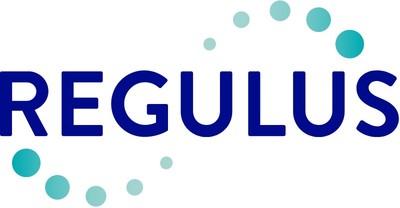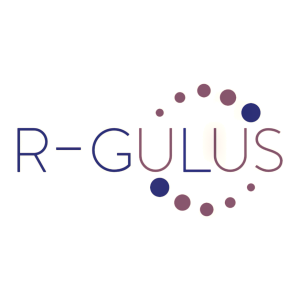Regulus Therapeutics Announces Positive Topline Data from the Third Cohort of Patients in its Phase 1b Multiple-Ascending Dose (MAD) Clinical Trial of RGLS8429 for the Treatment of Autosomal Dominant Polycystic Kidney Disease (ADPKD)
Regulus Therapeutics announced positive topline results from the third cohort of its Phase 1b multiple-ascending dose (MAD) clinical trial of RGLS8429 for treating autosomal dominant polycystic kidney disease (ADPKD). The trial evaluated safety, tolerability, pharmacokinetics, and pharmacodynamics of RGLS8429 across different doses. Key findings include a significant dose response in urinary biomarkers PC1 and PC2 at 3 mg/kg compared to placebo, and a reduction in total kidney volume in 70% of patients. The drug was well tolerated with no safety concerns. Enrollment for the fourth cohort is underway, with plans for a potentially pivotal Phase 2/3 study under discussion with the FDA.
- Significant dose response observed in PC1 and PC2 levels at the 3 mg/kg dose.
- 70% of patients showed a reduction in total kidney volume at 3 mg/kg.
- No safety concerns reported with RGLS8429.
- Continued mechanistic dose response observed with urinary biomarkers.
- Enrollment for the fourth cohort has started with up to 30 patients.
- None.
Insights
RGLS8429 is showing promise in treating ADPKD through its multiple-ascending dose study. ADPKD is a genetic disorder characterized by the development of numerous cysts in the kidneys, often leading to kidney failure. The observed reduction in total kidney volume (htTKV) and the increase in urinary polycystins (PC1 and PC2) point to the drug's potential effectiveness in mitigating the disease's progression. 70% of patients in the 3mg/kg cohort experiencing htTKV reduction is quite significant. Given that htTKV is a critical indicator of disease progression in ADPKD, these findings are notable. The ongoing fourth cohort's results will be important in confirming these preliminary findings and could potentially accelerate the drug's path to market. However, long-term safety and effectiveness over a larger patient population remain to be seen.
The clinical success of RGLS8429 offers substantial implications for Regulus Therapeutics' financial health. Positive topline data from the Phase 1b trial significantly increases the likelihood of eventual FDA approval. Should the drug proceed to Phase 2/3, it may attract further investor interest, potentially driving up the company's stock value. Investors will keenly watch the initiation of the fourth cohort and the ensuing data update. Financially, the company is positioned to benefit from the Accelerated Approval pathway, which could fast-track the drug's entry to market, translating to earlier revenue streams. However, investors should be mindful of the risks associated with clinical trials, which include potential regulatory setbacks, unforeseen safety issues and the financial burden of continued R&D.
Continued mechanistic dose response observed following completion of 3 mg/kg dose level based on urinary biomarker analyses
Percent change from baseline in PC1 and PC2 demonstrated a dose response across all doses tested, with statistical significance seen at 3 mg/kg compared to placebo
Exploratory imaging analyses indicated reduction in total kidney volume in
Fourth cohort enrollment underway
Company to hold conference call at 8:30am ET today
The Phase 1b MAD study is a double-blind, placebo-controlled trial evaluating the safety, tolerability, pharmacokinetics and pharmacodynamics (PK/PD) of RGLS8429 in adult patients with ADPKD. The study is evaluating RGLS8429 treatment across three different weight-based dose levels and one fixed dose level, including measuring changes in urinary polycystins 1 and 2 (PC1 and PC2), htTKV, cyst architecture, and overall kidney function. PC1 and PC2 are the protein products of the PKD1 and PKD2 genes and have been shown to inversely correlate with disease severity. Enrollment in the fourth cohort, which will include up to 30 patients, has been initiated and patients will receive an open label fixed dose of 300 mg of RGLS8429 every other week for three months. In addition to PC1 and PC2 and safety, imaging biomarkers will also be evaluated.
In the third cohort, 16 subjects were randomized 3:1 to receive either 3 mg/kg of RGLS8429 or placebo every other week for three months.
- RGLS8429 was well tolerated with no safety concerns
- Continued evidence of a mechanistic dose response was observed following completion of 3 mg/kg dose level based on urinary PC1 and PC2
- 3 mg/kg demonstrated more consistent increases in PC1 and PC2 across patients compared to earlier cohorts
- Percent change from baseline in PC1 and PC2 demonstrated a dose response across all doses tested, with statistical significance seen at 3 mg/kg compared to placebo
- Exploratory MRI imaging analysis suggested RGLS8429 reduced htTKV at 3 mg/kg after 3 months of dosing
70% of subjects demonstrated reductions in htTKV following completion of 3 mg/kg dose level
"We are pleased to see the consistent mechanistic response and reduction in htTKV at the 3mg/kg dose level of RGLS8429 along with an appropriate safety and tolerability profile," said Preston Klassen, M.D., President and Head of Research & Development. "These data support our ongoing and final 300 mg fixed dose cohort in this Phase 1b trial. We believe the data from this study will form the basis for a potentially pivotal Phase 2/3 study of RGLS8429 under an Accelerated Approval regulatory pathway to be discussed with the FDA."
"Building on the positive results from our first two cohorts, these cohort 3 data, particularly the reduction in htTKV seen in the majority of patients, further strengthen our conviction in RGLS8429's ability to potentially address the underlying, genetic cause of ADPKD," said Jay Hagan, CEO of Regulus Therapeutics. "We anticipate requesting an End-of-Phase 1 meeting with the FDA in the fourth quarter of this year and look forward to providing a data update from the open-label fourth and final cohort of the Phase 1b MAD study by year-end."
More information about the MAD clinical trial is available at clinicaltrials.gov (NCT05521191).
Conference Call Information
The Company will host a conference call and live audio webcast on June 24, 2024, at 8:30am Eastern Time. To access the call, please dial 1-833-816-1394 (domestic) or 1-412-317-0487 (international). The live webcast can be found under "Events and Presentations" through the investor relations section of the Company's website. To access the telephone replay of the call, dial 1-877-344-7529 (domestic) or 1-412-317-0088 (international), passcode ID 6325389. The webcast and telephone replay will be archived on the Company's website at www.regulusrx.com following the call.
About ADPKD
Autosomal dominant polycystic kidney disease (ADPKD), caused by mutations in the PKD1 or PKD2 genes, is among the most common human monogenic disorders and a leading cause of end-stage renal disease. The disease is characterized by the development of multiple fluid filled cysts primarily in the kidneys, and to a lesser extent in the liver and other organs. Excessive kidney cyst cell proliferation, a central pathological feature, ultimately leads to end-stage renal disease in approximately
About RGLS8429
RGLS8429 is a novel, next generation oligonucleotide for the treatment of ADPKD designed to inhibit miR-17 and to preferentially target the kidney. Administration of RGLS8429 has shown clear improvements in kidney function, size, and other measures of disease severity in preclinical models. Regulus announced completion of the Phase 1 SAD study in September 2022. The Phase 1 SAD study demonstrated that RGLS8429 has a favorable safety and PK profile. RGLS8429 was well-tolerated with no serious adverse events reported and plasma exposure was approximately linear across the four doses tested. In the Phase 1b MAD study Regulus announced topline data from the first cohort of patients in September 2023, from the second cohort of patients in March 2024 and from the third cohort of patients in June 2024. Regulus initiated enrollment in the fourth cohort of patients in May 2024. Patients in the fourth cohort will receive an open label, 300 mg fixed dose of RGLS8429 administered every other week for three months.
About Regulus
Regulus Therapeutics Inc. (Nasdaq: RGLS) is a biopharmaceutical company focused on the discovery and development of innovative medicines targeting microRNAs. Regulus has leveraged its oligonucleotide drug discovery and development expertise to develop a pipeline complemented by a rich intellectual property estate in the microRNA field. Regulus maintains its corporate headquarters in
Forward-Looking Statements
Statements contained in this press release regarding matters that are not historical facts are "forward-looking statements" within the meaning of the Private Securities Litigation Reform Act of 1995, including statements associated with the Company's RGLS8429 program and preclinical pipeline, the potential that RGLS8429 may be eligible for an Accelerated Approval pathway, the expected timing for reporting topline data, and the timing and future occurrence of other preclinical and clinical activities. Because such statements are subject to risks and uncertainties, actual results may differ materially from those expressed or implied by such forward-looking statements. Words such as "believes," "anticipates," "plans," "expects," "intends," "will," "goal," "potential" and similar expressions are intended to identify forward-looking statements. These forward-looking statements are based upon Regulus' current expectations and involve assumptions that may never materialize or may prove to be incorrect. Actual results and the timing of events could differ materially from those anticipated in such forward-looking statements as a result of various risks and uncertainties, which include, without limitation, the risk that the approach we are taking to discover and develop drugs is novel and may never lead to marketable products, that preliminary or topline results are based on a preliminary analysis of key efficacy and safety data, and such data may change following a more comprehensive review of the data related to the clinical trial and may not be indicative of future results, the FDA has not designated RGLS8429 for an Accelerated Approval pathway and such designation may not lead to a faster development, regulatory review or approval process and does not increase the likelihood that RGLS8429 will receive marketing approval, the risk that preclinical and clinical studies may not be successful, risks related to regulatory review and approval, risks related to our reliance on third-party collaborators and other third parties, risks related to intellectual property, risks associated with the process of discovering, developing and commercializing drugs that are safe and effective for use as human therapeutics, the risk that additional toxicology data may be negative, and risks related to our ability to successfully secure and deploy capital. These and other risks are described in additional detail in Regulus' filings with the Securities and Exchange Commission, including under the "Risk Factors" heading of Regulus' quarterly report on Form 10-Q for the quarter ended March 31, 2024. All forward-looking statements contained in this press release speak only as of the date on which they were made. Regulus undertakes no obligation to update such statements to reflect events that occur or circumstances that exist after the date on which they were made.
![]() View original content to download multimedia:https://www.prnewswire.com/news-releases/regulus-therapeutics-announces-positive-topline-data-from-the-third-cohort-of-patients-in-its-phase-1b-multiple-ascending-dose-mad-clinical-trial-of-rgls8429-for-the-treatment-of-autosomal-dominant-polycystic-kidney-disease-adp-302179857.html
View original content to download multimedia:https://www.prnewswire.com/news-releases/regulus-therapeutics-announces-positive-topline-data-from-the-third-cohort-of-patients-in-its-phase-1b-multiple-ascending-dose-mad-clinical-trial-of-rgls8429-for-the-treatment-of-autosomal-dominant-polycystic-kidney-disease-adp-302179857.html
SOURCE Regulus Therapeutics Inc.








